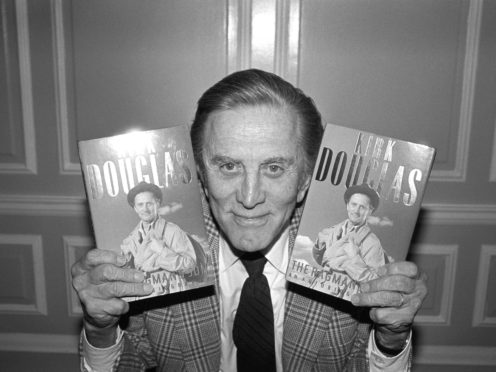With his famous cleft chin and imposing figure, Kirk Douglas could have coasted through as the archetypal action hero in films such as Spartacus.
But his stubborn intensity, intelligence and relish for difficulty leave a much broader, richer legacy from a career that spanned 45 years.
Driven Douglas never forgot his early struggles against poverty and prejudice, saying recently: “My kids never had the advantage I had. I was born poor.”
Douglas was born Issur Danielovitch Demsky in upstate New York in 1916.

He felt rejected by his father, a huge, hard-drinking illiterate Russian immigrant who had to be a rag-and-bone man to make a living.
Douglas became a caretaker to fund his studies at Saint Lawrence University, then won a scholarship to the American Academy of Dramatic Arts, where he met and married first wife Diana Dill.
A blossoming Broadway career was interrupted by the Second World War, when he served in the US navy.
On his return, Hollywood eagerly beckoned this strapping, angry man.
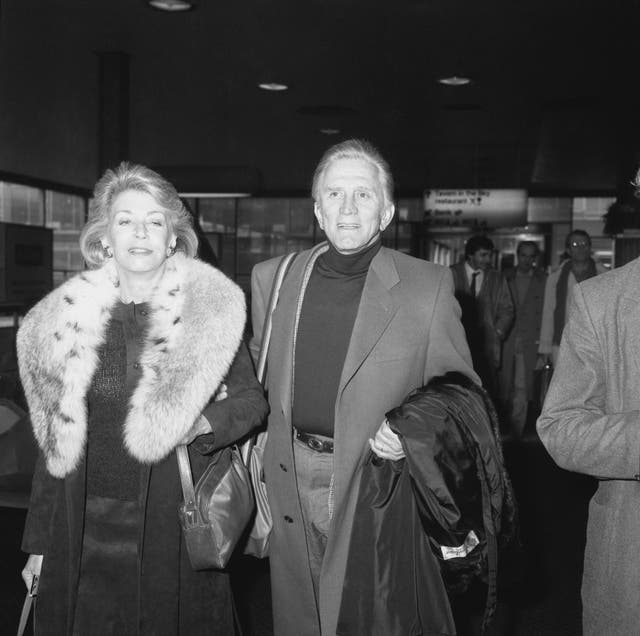
His first film was The Strange Loves Of Martha Ivers (1946) which starred Barbara Stanwyck.
But he had turned down a studio contract and also refused to have plastic surgery to remove the cleft in his chin that became his trademark.
Out Of The Past (1947) and A Letter To Three Wives (1948) followed, but it was the role of a hungry boxer in Stanley Kramer’s Champion (1949) which brought him stardom and his first Oscar nomination.
The 1950s saw Douglas’s fame at its height, but he eschewed the easy path to gravitate towards “son of a bitch” roles, as he put it.
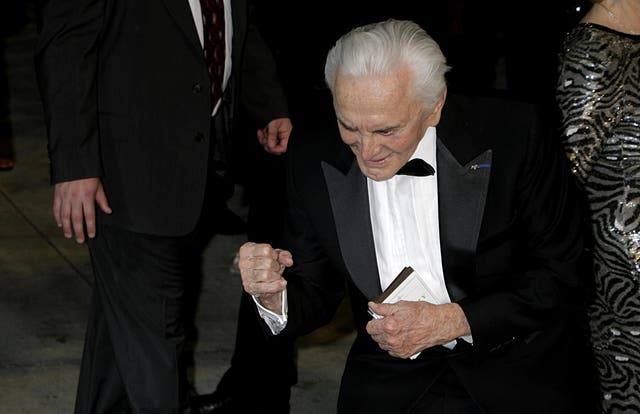
A brave portrayal of artist Vincent van Gogh in Lust For Life (1956) brought a third Oscar nomination, the second was for The Bad And The Beautiful (1952), but it would be many years before he took home a statuette.
Douglas’s string of successful and distinguished films during his heyday included Ace In The Hole (1951), 20,000 Leagues Under The Sea (1954), Gunfight At The OK Corral (1957), Paths Of Glory (1957), Spartacus (1960), Town Without Pity (1961), Lonely Are The Brave (1962) and Seven Days In May (1964).
During this time he took on the dark side of Hollywood and won, smashing the notorious McCarthyite blacklist.
In the late 1950s hundreds of artists and writers, including some star names, were exiled from America’s movie capital because of supposed Communist ties.
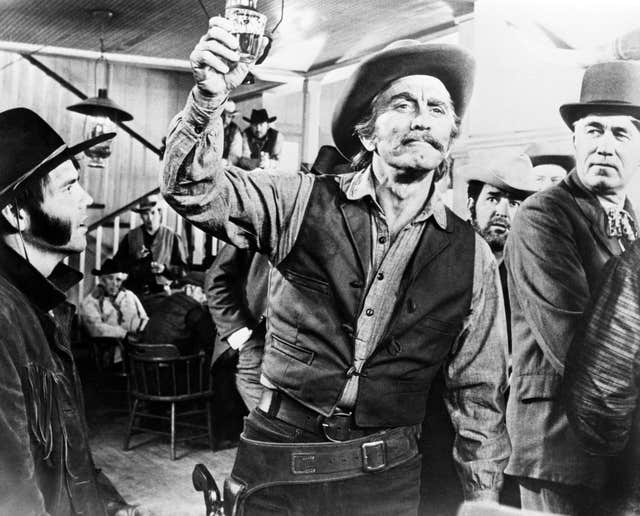
Through his independent Bryna Company, named after his mother, Douglas hired blacklisted screenwriter Dalton Trumbo to script Roman action movie Spartacus and publicly announced the fact.
The blacklist largely fell apart.
Off-screen his egotism was not always likeable. Doris Day complained: “Kirk never makes much effort towards people. He’s pretty much wrapped up in himself.”
By the middle part of the 1960s his career was in a frustrating decline.
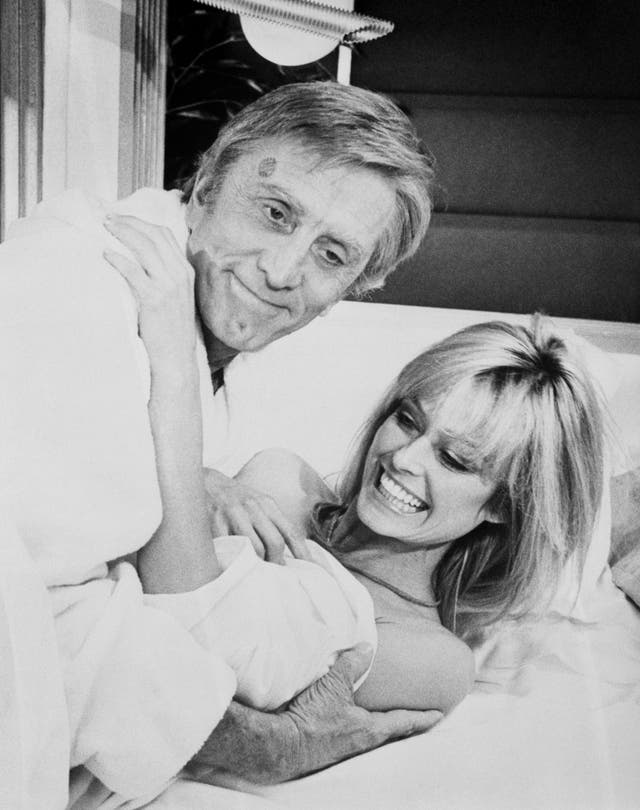
Despite advancing years, he was unwilling to relinquish leading man status – he remained famously vain until the end.
But when he let the image slip to play an old man in a nursing home in television film Amos (1985) it won him an Emmy nomination.
Tough Guys (1986) saw him paired for the last time with friend Burt Lancaster in an enjoyable nostalgic romp.
When it came to Greedy (1994) Douglas found himself in the ignominious position of having to audition against Jack Lemmon, Walter Matthau and Anthony Quinn.
But he was philosophical: “Last time I auditioned was 1946. But they needed to see if this old guy could still walk and talk.”
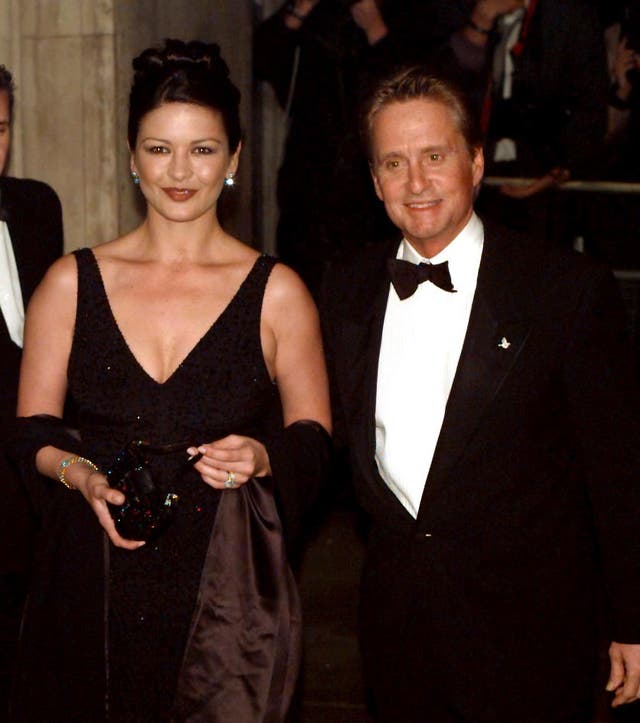
Douglas had married again to Belgian-born studio executive Anne in 1955.
His 1988 autobiography The Ragman’s Son made it plain, though never explicit, that he was far from faithful in early years, often succumbing to the temptations his star status afforded.
But it was a cherished union that lasted until his death. Douglas had four sons: Michael and Joel from his first marriage, and from the second, Peter and Eric, who died of a drug overdose in 2004.
Kirk told Michael he should be a lawyer, and when he saw his first Shakespearean role at college, told him it was “terrible”.
Bitterness and rivalry ignited when Michael, by then an established producer, passed his father over in favour of Jack Nicholson to star in One Flew Over The Cuckoo’s Nest (1975), a project Kirk had struggled to film for a decade.
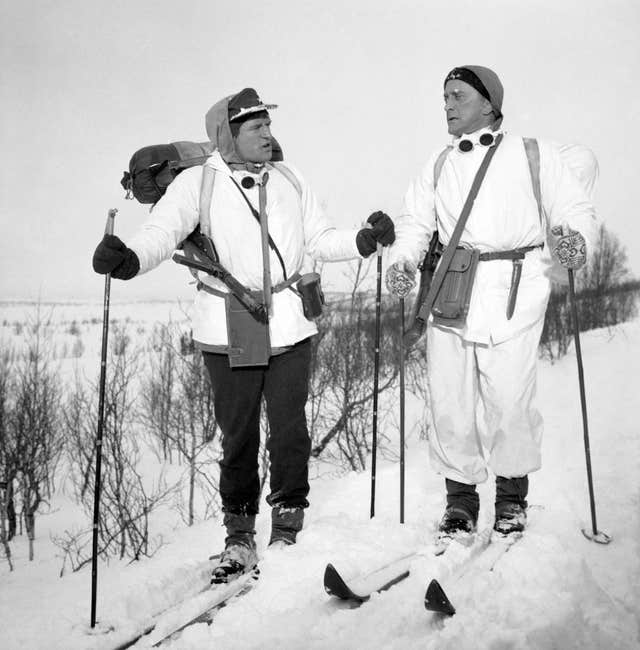
“If I had known he was going to be such a famous person I would have been much nicer to him when he was young,” he said ruefully later.
By the time Michael finally won the acting Oscar that always eluded his father for Wall Street (1987), Douglas was filled with pride.
Writing his autobiography had started a period of introspection that softened some of Douglas’s demanding and abrasive egotism.
A mid-air helicopter collision which he was lucky to survive in 1991 hastened the process.
He sold his collection of old masters and gave the proceeds to charitable foundations.

He and Michael were making plans for their first film together A Song For David before his last illness.
In February 1996 he suffered a damaging stroke, and its ravages could clearly be seen when he accepted his lifetime achievement Oscar two weeks later.
But the light still shone in his eyes as he stood tall to a standing ovation.
With difficulty he said: “I see my four sons.
“They are proud of their old man. And I am proud, too.
“Proud to be part of Hollywood for 50 years.”
Douglas still wanted to make movies and underwent years of voice therapy which allowed him to star in 1999 film Diamonds, in which he played an old prizefighter who was recovering from a stroke. It co-starred his long-time friend from his early years, Lauren Bacall.
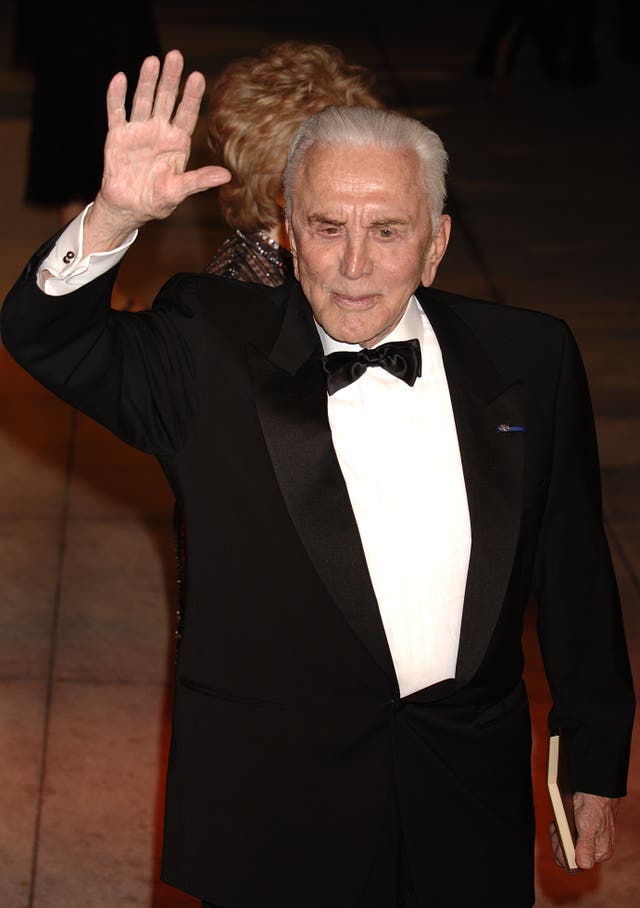
In 2003, his sons Michael and Joel produced It Runs In The Family, which starred various family members, including Kirk and his wife from 50 years earlier, Diana Dill.
In March 2009, Douglas performed an autobiographical one-man show titled Before I Forget at the Centre Theatre Group’s Kirk Douglas Theatre in Culver City, California. The four performances were filmed and turned into a documentary.
The awards kept coming in Douglas’s later life. In 1999, he received the Screen Actors Guild Lifetime Achievement Award and in 2002, president George Bush presented him with the National Medal of Arts award.
He also received a 2002 Emmy nomination for outstanding guest actor in a drama series for his performance in Touched By An Angel.
At the age of 94, Douglas made an appearance at the Oscars in 2011, introducing the best supporting actress nominees.
He became a centenarian on December 9 2016, and later celebrated his 101st birthday.
Douglas made a rare public appearance at the 2018 Golden Globes, with daughter-in-law Catherine Zeta-Jones, where he was given a standing ovation.
He celebrated his 103rd birthday in December, which Zeta-Jones marked by posting a picture of the two of them on her Instagram page.
